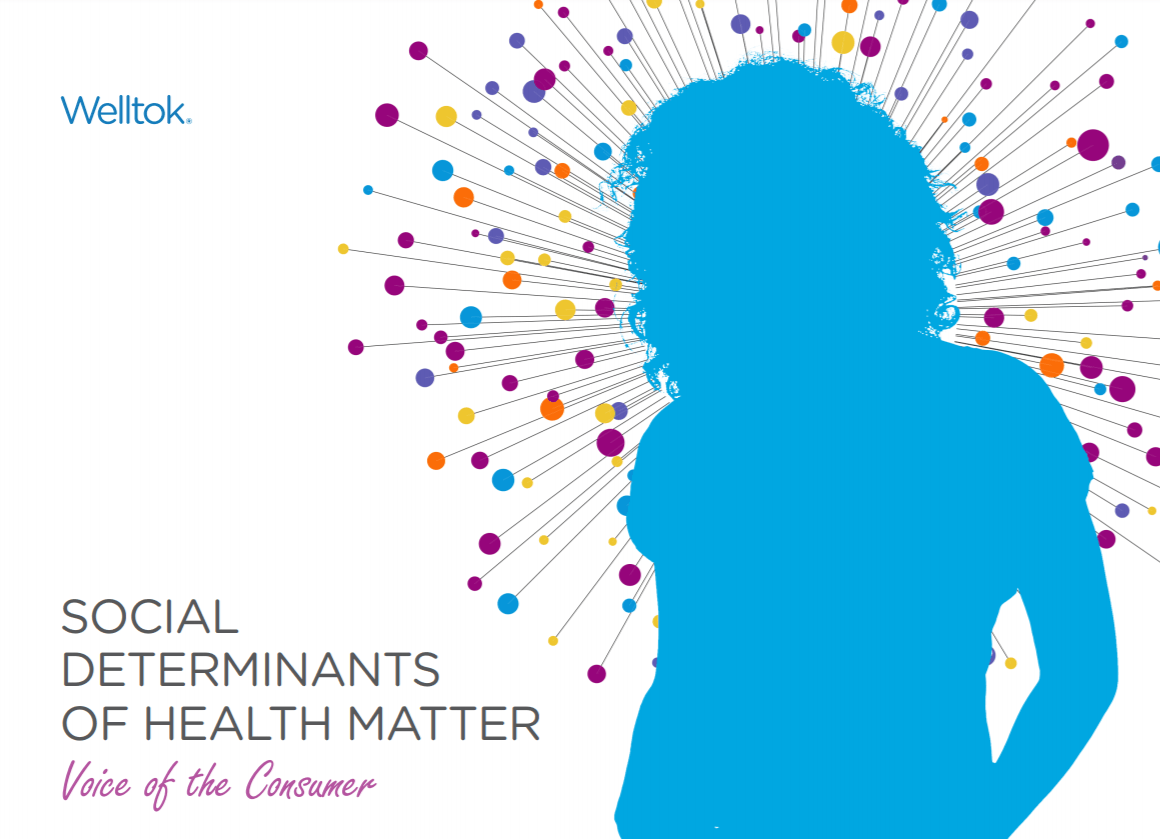
What You Should Know:
– Welltok survey reveals social determinants of health (SDOH) are becoming increasingly valuable during the COVID-19 pandemic for providers and health plans. It’s important they know what kind of lifestyle and environmental factors consumers are up against during social distancing and preventing the spread of the virus
– Welltok survey of more than 2,000 adults finds consumers don’t know what SDOH to share with their provider for optimal care
As the COVID-19 pandemic continues, social determinants of health data (occupation, income, food security, transportation, social support and more) are proving to be increasingly valuable as new information from the CDC correlated that some populations are being disproportionally affected by the pandemic. Welltok, the consumer health activation company, is applying its proprietary data that includes social determinants of health (SDOH) factors together with advanced analytics to help health organizations understand which individuals to target and engage across the populations they serve.
COVID-19 is proving that everyday factors can make a big difference in a person’s current and future risks and needs, along with the type of support and preventive actions that are essential to their total wellbeing. Yet, most health organizations do not have access to SDOH data. With a decade of experience, Welltok is helping health systems, insurers and self-insured employers to supplement their traditional clinical encounter and claims data with SDOH insights to conduct targeted and personalized outreach that drives consumers to take action to improve their wellbeing. The company boasts an unparalleled consumer database of 275 million people, featuring more than 800 predictive variables such as household composition, purchasing patterns, debt and car ownership.
Survey Key Findings
Given the continued prominence of SDOH, Welltok recently conducted a survey of more than 2,000 adults with independent research firm Ipsos. The results are now available in the new report Social Determinants of Health Matter: Voice of the Consumer, and includes key findings like:
Consumers underestimate the non-clinical drivers that impact their wellbeing. Most Americans do not understand the impact factors such as ethnicity, income and occupation have on their total wellbeing. They over-estimate the degree that clinical care and genetics influence their wellbeing (assuming 51% compared to the commonly sourced 30%), which means they are less likely to recognize the impact of their daily choices. Are they getting enough physical activity, staying mentally sharp or taking their medications?
The majority of people have experienced a change that impacts their wellbeing. With a record 22 million filing for unemployment in four weeks[1], the rate of change for SDOH factors is happening even faster. And, it also confirmed people were not routinely sharing these life updates with the organizations that help manage their health.
Consumers do not know what SDOH information to share with providers. The survey also revealed that nearly half of U.S. adults do not even know what type of SDOH information to share with their provider or insurer, which can be detrimental to the type of support and communications consumers receive.
“The current public health crisis underscores the importance of leveraging SDOH as a way to effectively provide timely, relevant support that is truly going to make a difference for people’s total wellbeing,” said Bob Fabbio, Welltok’s CEO. “It’s not only about predicting high-risk individuals, but also those that may be feeling isolated, financially insecure or emotionally unstable that need help. People are lost and looking for personalized support and information from organizations they trust.”
“Welltok has, and always will be, in the business of combining clinical and claims data with social determinants of health insights to pinpoint who to engage with which types of resources,” added Fabbio. “We have the data and expertise to identify actionable insights like who needs financial assistance, is at risk of a relapse, is becoming depressed and so on. By leveraging SDOH data, the industry can take a more proactive approach to supporting the total wellbeing and COVID-19 needs of Americans – and potentially prevent a second health crisis as a fallout of this pandemic.”
For more information, visit the Welltok SDOH survey by market: health plan, health system and employer.
